How Much is the Ghanaian Bride Price? A Guide to Traditional Practices
If you’re curious about the Ghanaian bride price, you’re diving into a rich cultural practice that holds deep significance. In many parts of Ghana, the bride price is a key element of customary marriage, representing an agreement between families. It’s a tradition deeply woven into society. Historically, it involved items like fabric or livestock, but money is often a part of the process today. The bride price varies greatly depending on the families involved and can range from modest sums to amounts reaching thousands of Ghanaian cedis.
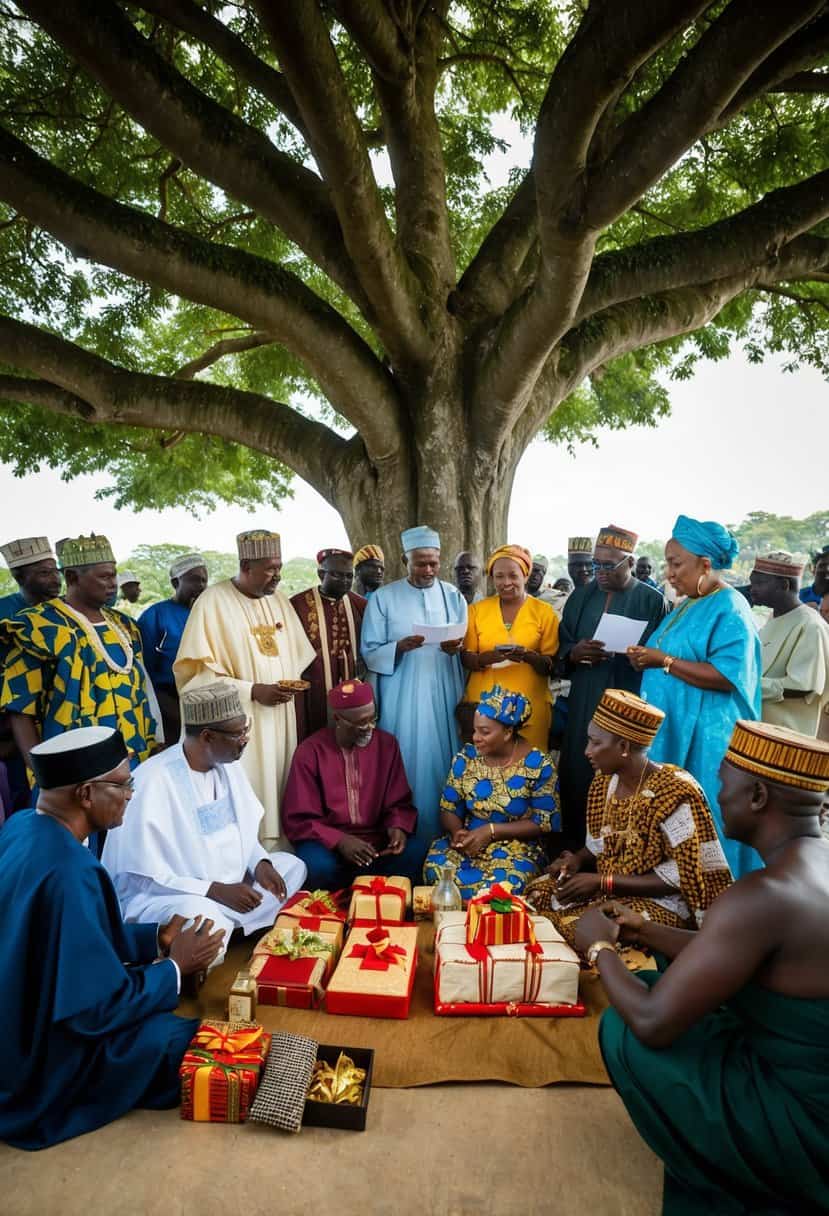
The bride price serves various purposes, such as showing appreciation to the bride’s family and acknowledging their role in her upbringing. In Ghana, this practice isn’t just about monetary exchange; it reinforces bonds between families and communities. You might be surprised to learn that while some see it as a potential burden, others view it as a joyous celebration and affirmation of cultural constants.
In different regions of Ghana, you’ll encounter diverse experiences with bride prices, as they adapt to modern influences while maintaining their roots. Understanding these nuances will give you a broader perspective on what this practice means to those involved. Enjoy exploring how the bride price continues to shape and reflect relationships in Ghanaian society today.
Understanding Bride Price in Ghana

In Ghanaian society, the tradition of bride price plays a significant role in marriages, influencing both customary marriages and modern practices. By understanding the practices of bride price, you gain insight into cultural dynamics and gender identity within marriages.
The Concept of Bride Price
Bride price is a tradition where the groom’s family provides gifts or payments to the bride’s family. Traditionally, it includes items like animals, drinks, or cash. This practice underscores the bond between families and acts as a form of appreciation to the bride’s family.
Before British colonization in 1867, bride price did not involve cash, as it was not part of the Ghanaian economy. Over time, changes have led to an increased demand for cash and expensive items, reflecting the family’s status and the importance placed on customary marriages. In Northern Ghana, bride price often includes livestock like cows or goats, while in Southern Ghana, cash and drinks are typical choices.
Customary Marriages vs Modern Practices
Customary marriages in Ghana are often strongly associated with traditional practices, including the bride price. In these marriages, the bride price serves as a key component of the marriage agreement, reinforcing cultural and familial connections.
In modern practices, while bride price is still prevalent, a shift is noticeable. Young couples often seek to incorporate both traditional and contemporary elements into their weddings. Some families may negotiate on the items and amounts to keep it affordable, reflecting changes in gender identity and economic situations. Despite these shifts, the significance of bride price in Ghanaian society remains, highlighting cultural roots and evolving modern traditions.
Cultural Significance and Practices
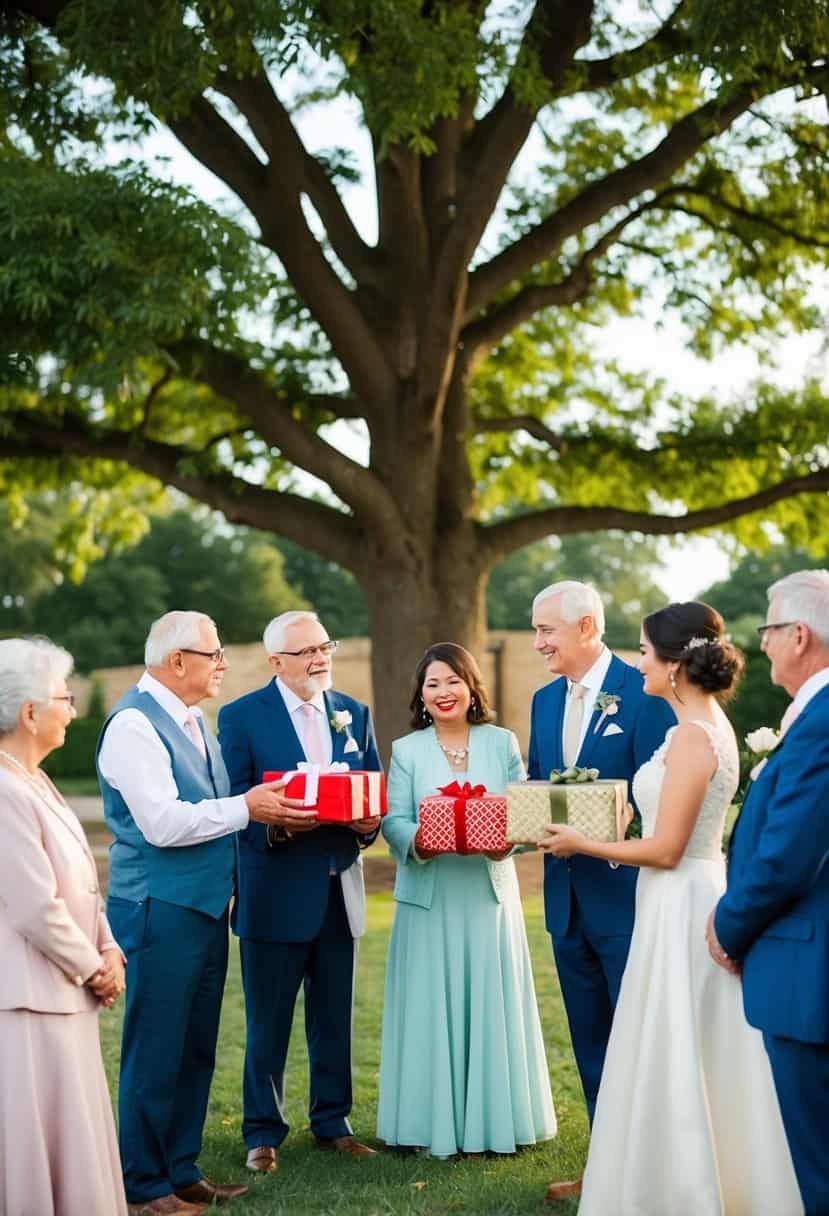
The Ghanaian bride price holds deep meaning within families and communities. This tradition impacts family bonds and varies in different regions of Ghana. By understanding these factors, you gain insight into its lasting influence on cultural identity and interpersonal relationships.
Role of Bride Price in Family Bonds
In Ghana, the bride price plays a vital role in strengthening family ties. It is more than a transaction; it represents the groom’s respect and commitment to the bride and her family. Through this act, families come together, reinforcing unity and shared responsibility.
Family bonds are enriched by this tradition. The process is often communal, involving family discussions and agreements. Everyone’s input, from elders to younger siblings, creates a sense of collective partnership.
The bride price reinforces values like respect and harmony. For many families, it emphasizes the importance of femininity and masculinity, defining roles and expectations. This helps solidify relationships between families, contributing to a harmonious community.
Cultural Variations Across Regions
The practice of bride price varies across the Ashanti region and other areas in Ghana. Each area has its unique customs and expectations, affecting how the bride price is regarded and paid.
In some regions, cultural practices dictate specific items or amounts that need to be included. This might involve a combination of money, clothes, and food. These items symbolize respect and acknowledgment of the bride’s family.
The Ashanti region, known for its rich traditions, emphasizes elaborate ceremonies, reflecting their unique cultural identity. On the other hand, other regions may focus more on practical aspects, such as the economic contributions of the bride price. This diversity highlights the flexible nature of the tradition, adapting to local customs and socioeconomic conditions.
The Financial Aspects of Bride Price
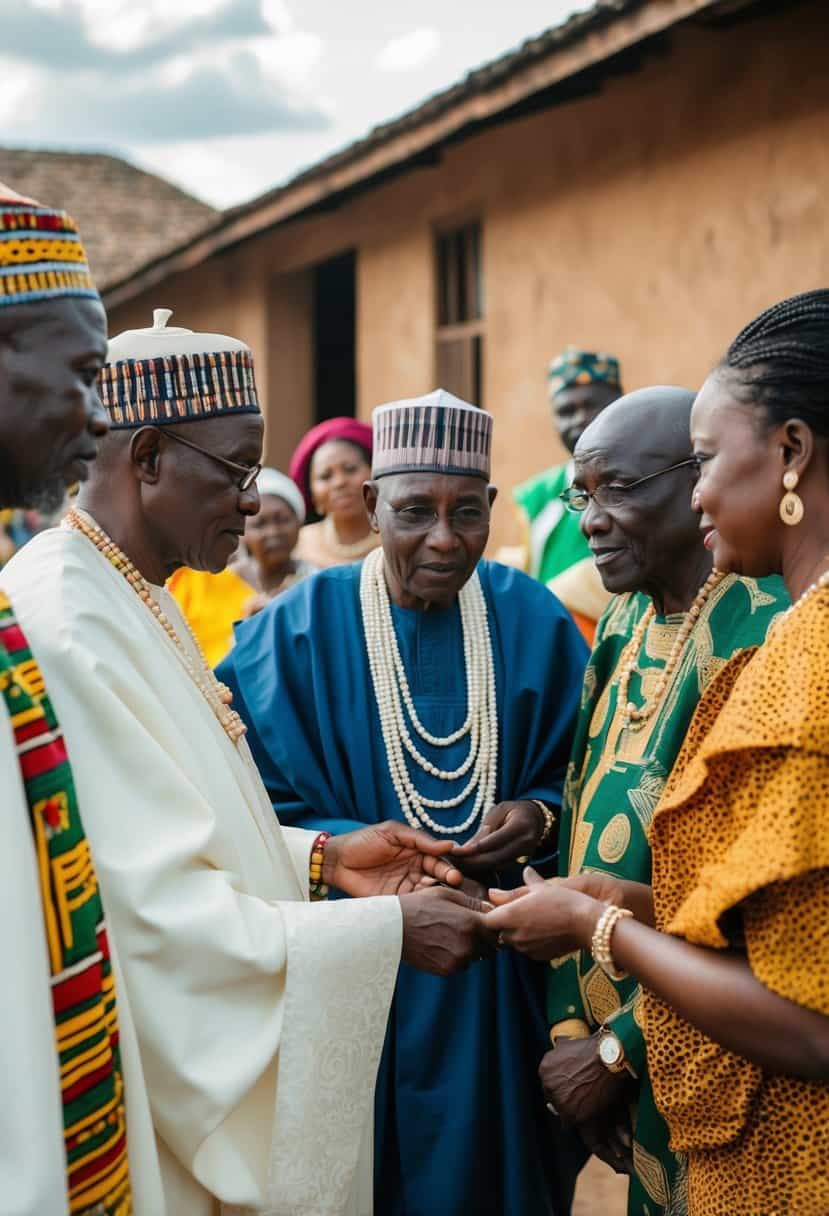
Understanding the financial aspects of bride price can help you navigate this important cultural practice with ease. In Ghana, these payments play a significant role in marriage negotiations and are often compared to the concept of a dowry.
Typical Amounts and Negotiation
In Ghana, the bride price can vary greatly, but typical amounts might be around GHS 600.00. This is just a starting point, and actual figures depend on factors like family expectations and cultural norms. It’s not uncommon for negotiations to take place to settle on a fair price.
The groom’s family often bears the responsibility of making payments, which can also include additional gifts like cloth or drinks. These negotiations are usually done respectfully, aiming for mutual agreement. The payments can provide financial support for the bride’s family, compensating them for raising their daughter. If you’re planning a wedding party, it’s wise to budget for these costs to avoid stress.
Dowry vs Bride Price
When you hear about a dowry, it’s easy to confuse it with a bride price. However, these are different concepts. A dowry typically involves the bride’s family giving gifts or money to the groom’s family, while a bride price involves the opposite exchange.
In many Ghanaian communities, the bride price is paid by the groom’s family as a symbol of commitment. Understanding these differences can help you better appreciate the cultural significance behind each. This practice often legitimizes the marriage within the community and provides a foundation for marital stability. In contrast, a dowry, though less common in Ghana, might still appear in other cultural contexts.
Societal Impact and Discussion
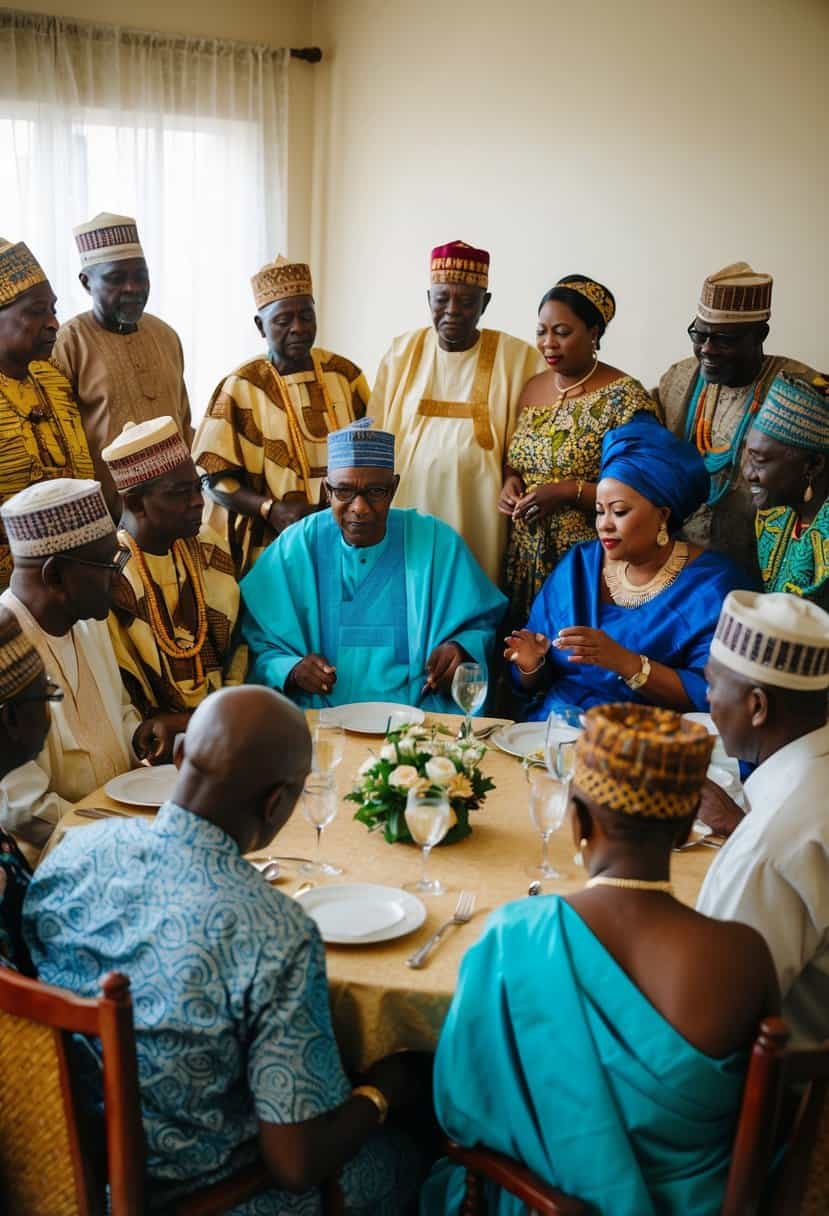
The tradition of bride price in Ghana has significant effects on gender roles and marital relationships. It can influence power dynamics between partners and affect the success or failure of marriages.
Impact on Gender Dynamics and Relationships
In many communities, the practice of bride price can shape the way men and women interact. It may reinforce traditional gender roles, with women sometimes experiencing female subordination. Some believe it gives men an upper hand in relationships because the payment might make them feel entitled to control. This dynamic can contribute to issues like domestic violence.
Moreover, the expectation to fulfill certain roles can pressure both genders. Women might feel obligated to meet traditional expectations which can conflict with modern views on gender identity. Meanwhile, men might face stress due to financial expectations associated with paying the bride price.
Marital Stability and Divorce Rates
Bride price can also affect marriage stability. Some studies suggest it might either stabilize or destabilize marriages. In some cases, expensive bride prices can cause a financial burden, which can strain marital relationships. This financial strain might even lead to higher divorce rates.
On the other hand, some believe that the payment can create a sense of commitment, thereby enhancing marital stability. The tradition ties families together, which can help keep the marriage intact.
Advocacy and Future Directions
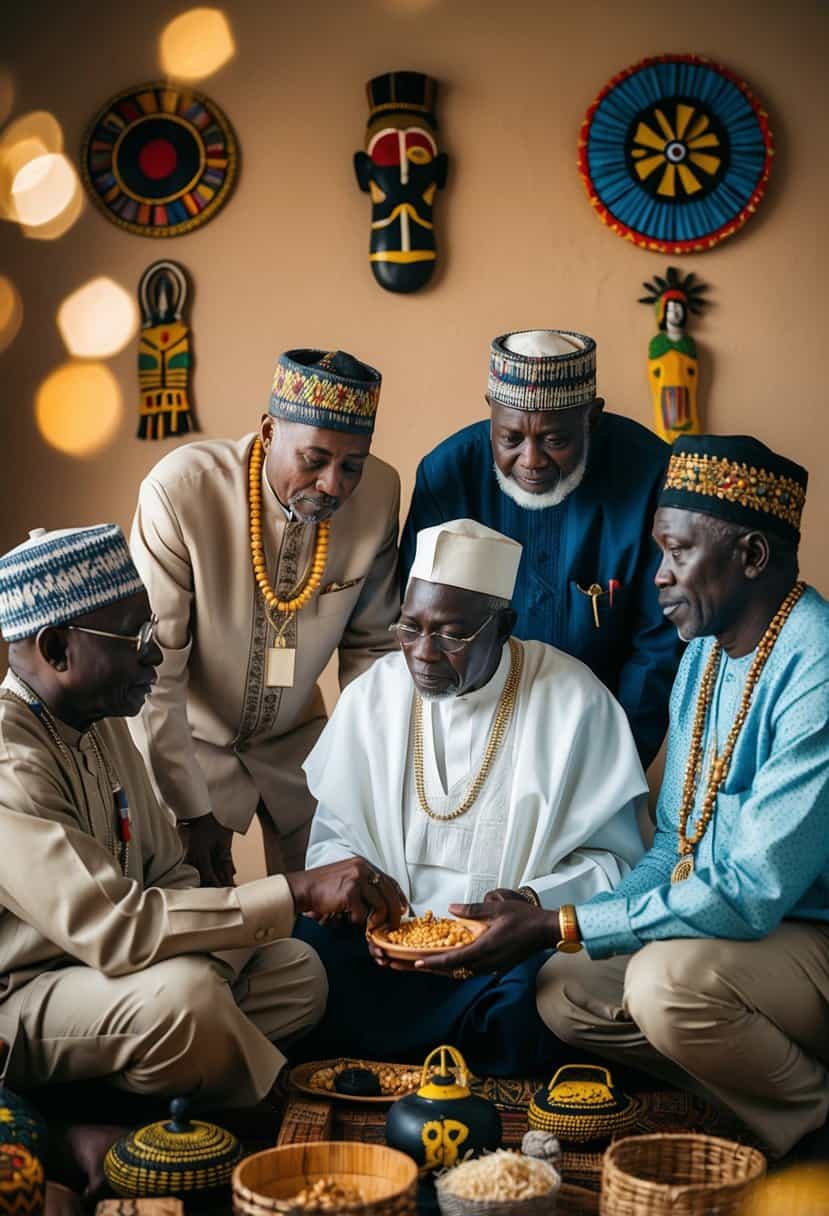
Advocacy for changes to the bride price in Ghana focuses mainly on human rights and evolving cultural attitudes. Effective initiatives tackle issues like domestic violence and promote educational reforms that can help reshape traditional views.
Human Rights Perspectives
You might encounter human rights initiatives focusing on the psychological implications of bride price practices. These programs aim to address concerns such as gender inequality and domestic violence.
Anti-IPV ambassadors (domestic violence) and anti-sexual violence programs often collaborate with local communities. Their goal is to create awareness about how bride price can negatively affect women’s rights. They emphasize the need for fair treatment and equality within marriages. Such advocacy encourages communities to re-evaluate practices, offering a more gender-equal approach.
Evolving Attitudes and Reforms
The way people in Ghana view bride price is slowly changing. Younger generations are questioning its role. This change is thanks to more exposure to education and premarriage counselling. These sessions show how traditional practices might contribute to gender stereotypes.
As attitudes shift, advocacy groups push for legal reforms. They want laws that support women’s rights while considering cultural traditions. Offering alternatives, such as community workshops, helps educate and empower individuals to question outdated customs. This helps create a society where practices are aligned with modern values and human rights.


